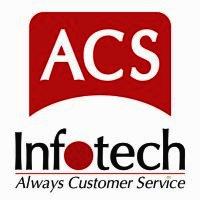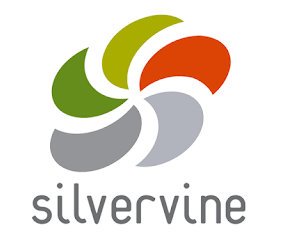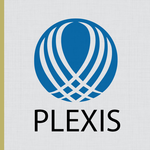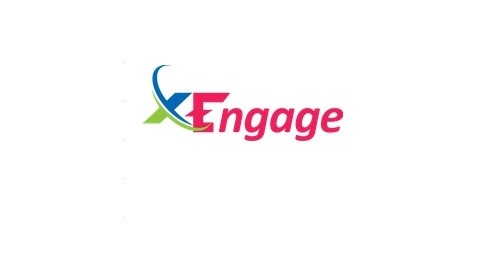Yes, most insurance policy software is accessible from numerous devices and platforms, including desktop computers, laptops, tablets, and smartphones. This enables insurance agents and policyholders to easily access the software from anywhere with an internet connection. However, before using the software, ensure compatibility with various devices and operating systems by contacting the software provider.
List of Best Insurance Policy Software
Mobinsure is the insurance software that sets a new industry standard. With cutting-edge technology and user-friendly features, Mobinsure streamlines insurance management for both providers and clients. By modernizing traditional processes, this inno...Read More Mobinsure
InsureEdge is a software solution designed to streamline policy management and claims processing for insurance companies. Its centralized platform simplifies customer onboarding, policy administration, and reinsurance processes, leading to increased...Read More InsureEdge
Cooper Rose Digital is the premier MGA, insurer, and broker management system. Our comprehensive platform is fully customizable and aims to build trust, transparency, and leverage our extensive industry experience. Our holistic approach offers person...Read More Cooper Rose Digital
i2go Cloud Insurance - a dynamic software as a service that simplifies insurance operations for businesses of any size. With swift product deployment, online sales, and seamless claims handling, i2go equips insurance providers to foster valuable clie...Read More i2go Cloud Insurance
PolicyFlow is a policy administration software that streamlines insurance processes for personal and commercial clients. From quote tracking to claim management, finance, and compliance, this platform efficiently collects and manages detailed informa...Read More PolicyFlow
INFOMAN eCRM is a customer relationship management software for automobile dealerships in India. From insurance renewal to lead generation and service marketing, our platform simplifies interactions and data management. With special attention to hand...Read More INFOMAN eCRM
InsPro Enterprise is the insurance software that is revolutionizing the industry with cutting-edge technology. With enhanced operations and improved customer interactions, this software is redefining traditional practices and setting a new standard f...Read More InsPro Enterprise
Silvervine is a leading insurance software that provides cutting-edge solutions to improve operations and boost customer satisfaction. Our advanced technology simplifies direct sales and effective distribution management for insurance companies and M...Read More Silvervine
OneShield Policy is a policy administration platform designed specifically for insurance companies. This cutting-edge, cloud-based solution offers custom workflows and advanced features to streamline operations, increase efficiency, and enable scalab...Read More OneShield Policy
Sapiens Reinsurance software is a solution tailored for the financial services sector. Designed specifically for insurance companies, it covers Property&Casualty, General Insurance, and Life&Pension Management. Our advanced software streamlines reins...Read More Sapiens
The Solartis platform is a, API-centric software that revolutionizes insurance operations through microservices. Our advanced technology, alongside premier BPO services, provides robust assistance for all aspects of P&C policy management. Stay ahead...Read More Solartis
Enablon is software platform that enables businesses to effectively manage water resources and meet water stewardship obligations. It helps companies maintain compliance with regulations and demonstrate responsible use of water by proactively monitor...Read More Enablon
PLEXIS is a popular and reliable enterprise payer platform utilized by over 100 healthcare payers across the globe. Our flexible software solutions are specifically crafted to enhance productivity and facilitate growth for payer entities. PLEXIS offe...Read More PLEXIS
DXC Insurance is a software revolutionizing the insurance landscape. Harnessing cutting-edge technology, DXC Insurance simplifies operations, ensures adherence to regulatory standards, and enhances customer delight. With DXC, transform your business...Read More DXC Insurance
Smart Agent is a insurance policy management and reminder software and app tailored for agents and agencies. Our intuitive platform caters to all insurance types such as life, motor, and general. Supercharge your insurance sales and optimize your ope...Read More Smart Agent
Xemplar Engage solution for enhancing customer engagement, satisfaction, and loyalty. With powerful digital services, Xemplar Engage offers seamless interactions on-the-go for an elevated policyholder experience. Empower your sales, communication, an...Read More Xemplar Engage
Majesco is a leading software provider specializing in innovative insurance technology solutions. Their comprehensive platforms offer seamless management of policies, billing, and claims, resulting in enhanced customer interactions. Through their cut...Read More Majesco
Learn More About Insurance Policy Software
- What Is Insurance Policy Software?
- What Are The Recent Trends In Insurance Policy Software?
- Benefits Of Using Insurance Policy Software
- Important Factors To Consider While Purchasing Insurance Policy Software?
- What Are The Key Features To Look For In Insurance Policy Software?
- Why Do Businesses Need Insurance Policy Software?
- How Much Time Is Required To Implement Insurance Policy Software?
- What Is The Level Of Customization Available In Insurance Policy Software?
- Which Industries Can Benefit The Most From Insurance Policy Software?
- Conclusion
What Is Insurance Policy Software?
Insurance policy software is a specialized digital tool that simplifies and automates the operations of drafting, managing, and tracking insurance policies. It is used by insurance companies, brokers, agents, and underwriters to manage the complexities of policy administration. This program offers a consolidated platform for insurance professionals to store and access policy information, make calculations, and generate required documents such as quotes, policies, endorsements, and renewals.
It also enables easy customization of policies to match the individual demands of clients. One of the primary advantages of insurance policy software is its ability to eliminate human errors while saving time. Automated procedures and data entry considerably reduce the possibility of errors and delays. This leads to greater efficiency and accuracy throughout the policy generation and management process.
Furthermore, insurance policy software frequently connects with other systems such as billing and claims processing, giving insurance businesses a comprehensive end-to-end solution. This interface allows for easy data sharing and simplifies the overall insurance management process. Insurance policy software also has comprehensive reporting and analytics features.
By gathering and arranging data, insurance professionals can acquire useful insights into policy performance, market trends, and areas for improvement. When contemplating acquiring insurance policy software, you should consider its compatibility with your existing systems and software, as well as its usability, security measures, and customer support. It is also critical to compare the exact features and functions provided by various software suppliers to ensure that you choose the one that best meets your business requirements.
What Are The Recent Trends In Insurance Policy Software?
In recent years, the insurance business has undergone a considerable shift toward digitization, which has raised demand for insurance policy software. Companies are seeing the benefits of employing technology to expedite policy administration operations, cut costs, and improve customer experience. Artificial intelligence (AI) and machine learning have emerged as prominent recent advancements in insurance policy software.
These modern technology can evaluate vast volumes of data in real time, allowing insurers to make more accurate risk assessments and underwriting choices. AI has the ability to automate ordinary operations, allowing humans to focus on more complicated and customer-facing work. Another trend in insurance policy software is the incorporation of data analytics and predictive modeling.
Data analytics can provide insurers with important insights into client behavior and preferences, allowing them to adapt plans and pricing accordingly. Predictive modeling, on the other hand, employs data and statistical algorithms to reliably forecast future events, allowing insurers to make more informed decisions and avoid potential losses. The growth of the "insurtech" industry has had a considerable impact on insurance policy software.
Startups and technology businesses are working on creative ideas to improve the insurance industry, from client engagement to claims processing. This has resulted in increased competition, forcing traditional insurers to upgrade their processes and implement new technologies. In addition, mobile technology has become an important component of insurance policy software.
Most customers prefer to monitor their policies and file claims on their mobile devices, and insurers are responding to this trend by creating user-friendly mobile apps. This enables faster and more convenient interactions between insurers and clients, ultimately leading to increased customer satisfaction. Finally, there has been an increased emphasis on cybersecurity in the insurance sector, resulting in the creation of more secure and compliant policy software. With a rising number of cyber assaults and data breaches, insurers are emphasizing the safety of sensitive client data by including strong security measures into their software.
Benefits Of Using Insurance Policy Software
As a buyer looking for insurance policy software, you may be wondering how it may benefit you and your firm.
Allow us to walk you through the many benefits of using insurance policy software.
1. A Streamlined Process: One of the most major benefits of using insurance policy software is its ability to streamline the entire insurance process. This tool enables you to easily and efficiently manage all parts of your insurance, from quote production to claim administration. This saves time and resources, allowing you to focus on the most important aspects of your organization.
2. Increased Efficiency: Insurance policy software is designed to automate tasks that were previously handled manually, such as data entry and policy calculations. This not only saves time, but it also reduces the possibility of errors, leading to increased efficiency and accuracy.
3. Centralized Data Management: All of your data is saved in a single, centralized location utilizing insurance policy software, making it easily accessible and reducing the risk of loss. This ensures that you have access to all necessary information, allowing you to make prompt, informed decisions.
4. Customization Options: Insurance policies differ by business, and insurance policy software allows for customization to match your company's specific needs. This means you can tailor the application to your policies, processes, and workflow, making it the best solution for your specific business needs.
5. Real-Time Tracking: Insurance policy software enables real-time tracking of policies, premiums, and claims. This allows you to monitor the progress of each policy and immediately identify any errors or discrepancies, leading in faster resolution and client satisfaction.
6. Improved The Consumer Experience: Insurance policy software improves the client experience by automating activities, making data more accessible, and allowing for real-time tracking. This program improves response times, lowers error rates, and offers clients a more efficient and simplified experience.
7. Cost-Effective: While the initial cost of purchasing insurance policy software may appear to be prohibitively expensive, it is eventually a cost-effective investment. The automation and streamlining of activities reduce operational costs, making it a sound investment for any company.
Important Factors To Consider While Purchasing Insurance Policy Software?
There are various important factors to consider while purchasing insurance policy software. As the insurance industry evolves and becomes increasingly digital, choosing the right software is important to the success of any insurance company.
Here are the key aspects to consider when selecting insurance policy software:
1. Capabilities And Functionality: The first and most crucial factor to consider is the software's capabilities and functionality. It should be able to handle all of the tasks required for effective insurance policy management. This includes policy issuance, underwriting, claims processing, and renewals. Furthermore, the software should be able to communicate with other systems and automate procedures to improve efficiency.
2. Customization: Each insurance company is unique and has its own set of criteria. As a result, it is vital to choose software that can be customized to your company's specific needs. This includes the ability to add and remove features, control user privileges, and tailor the system to your specifications.
3. User-Friendly Interface: A user-friendly interface is essential for ensuring that your staff use the software effectively and efficiently. Look for software that has a clean and simple design, easy navigation, and requires little user training.
4. Security And Compliance: Because insurance involves sensitive and personal information, it is vital to choose software that has strong security measures and adheres to industry standards. This includes data encryption, user access controls, and compliance with rules like GDPR and HIPAA.
5. Scalability: As your insurance company grows, so do your software requirements. Make certain that the software you select is scalable and can meet your future company needs without causing significant disruptions or incurring additional costs.
6. Customer Support: No matter how difficult the software is, there will be times when you need help or have queries. Look for a company that offers good customer service, whether by live chat, phone, or email.
7. Pricing: Pricing is important to consider, but it should not be the main deciding factor. While cost is important, the cheapest option may not always be the best. To determine total value, weigh the software's features and benefits against its cost. By considering these factors, you can make an informed decision regarding which insurance policy software is best for your firm.
What Are The Key Features To Look For In Insurance Policy Software?
When choosing insurance policy software, seek for features that will not only streamline your procedures but also ensure accuracy and compliance.
As a buyer, here are the important elements to look for in insurance policy software:
1. Easy Policy Management: Look for software that lets you simply handle all parts of your insurance policies, from generating and renewing them to tracking claims and payments. The program should also include a consolidated and organized platform for viewing and managing all of your policies.
2. Automatic Renewal Reminders: This function might help you save time and avoid missing deadlines. The program should be able to automatically produce reminders for forthcoming policy renewals, allowing you to remain on top of your policies and avoid lapses.
3. Customizable Templates: The ability to customize templates allows you to develop policies that are specific to your needs and requirements. This tool not only streamlines the policy generation process, but it also assures that your policies are consistent and accurate.
4. Compliance Management: Compliance is critical in the insurance sector, and your software should include capabilities to assist you remain on top of rules and compliance needs. Look for built-in compliance checks, notifications, and reporting tools to keep your policies up to date.
5. Integration Capabilities: Your insurance policy software should be compatible with other systems and tools you use, such as accounting and payment systems. This connectivity will allow for a more seamless flow of data, significantly streamlining your procedures.
6. Robust Reporting And Analytics: Insurance policy software should provide detailed reporting and analytics features that enable you to analyze performance, spot patterns, and make data-driven choices. Look for options like configurable dashboards, real-time reporting, and data visualization tools.
7. Security And Data Protection: Because insurance plans contain sensitive information, it is critical to maintain the security and privacy of your data. To secure your data from cyber attacks, look for software that has encryption, user access limits, and scheduled backups.
8. User-Friendly Interface: The ideal insurance policy software should be simple to use and navigate. Look for a user-friendly design that is intuitive and takes little training, so you can get started quickly.
Why Do Businesses Need Insurance Policy Software?
Businesses of all sizes and industries rely on insurance plans to protect their assets and reduce risk. However, keeping track of several plans, coverage information, and premium payments can be a difficult endeavor. This is where the insurance policy software comes in. Insurance policy software is a comprehensive digital solution that simplifies and automates the insurance policy management process for organizations.
It enables businesses to manage all of their policies in a single centralized system, eliminating the need for manual paperwork and spreadsheets. One of the primary reasons organizations use insurance policy software is for effective policy management. The software allows businesses to conveniently track policy information, deadlines, and renewals. This helps to prevent coverage lapses and keeps all insurance up to date.
Furthermore, insurance policy software enables firms to compare plans and bids from multiple insurance providers. This not only saves money, but also ensures that businesses receive the finest coverage for their specific needs. Another important feature of insurance policy software is risk assessment and analysis. Based on the data provided, the software can identify potential risks and recommend appropriate mitigation strategies.
This allows firms to make informed decisions about their insurance coverage. In addition to policy management, several insurance policy software packages include facilities for claims management. This allows firms to conveniently file and track claims, minimizing the time and effort required for paperwork. Furthermore, insurance policy software includes tools for compliance management.
With shifting regulations and legislation, businesses must remain compliant with insurance plans. The program ensures that businesses follow the relevant norms and requirements, avoiding potential legal or financial implications. Overall, insurance policy software gives organizations a consolidated and efficient approach to manage their insurance policies. It saves time, money, and reduces risks, making it a must-have solution for any business trying to streamline their insurance policy management. So, if you want to ensure that your business is properly protected while saving time and effort, investing in insurance policy software is a wise decision.
How Much Time Is Required To Implement Insurance Policy Software?
The time required to develop insurance policy software varies depending on several factors. These include the complexity of the program, the size of the company, and the degree of customization required. However, on average, the implementation phase can last from a few weeks to several months. One of the first tasks in the implementation process is to collect all relevant information regarding your insurance plans, such as policy types, coverage limits, and price information.
This can be a time-consuming procedure, particularly for larger firms with several policies. Next, the software must be configured to fit your organization's specific requirements. This includes establishing user profiles, developing workflows, and integrating with any current systems. Depending on the extent of customization necessary, this procedure can take a few weeks to many months.
Before fully deploying the software, it is critical to do extensive testing to ensure that it is functional and meets all of your organization's requirements. This can take many weeks to complete, as any difficulties or bugs discovered during testing must be resolved before the software can be fully integrated. After testing is completed, the program can be deployed, and training can begin.
This is a critical phase in the implementation process since it guarantees that all employees understand how to utilize the software and its features. Overall, the time necessary to establish insurance policy software varies according to your organization's specific demands and size. It is critical to collaborate closely with the software vendor to establish a realistic timeframe and ensure a smooth and effective installation.
What Is The Level Of Customization Available In Insurance Policy Software?
When choosing insurance policy software, one crucial factor to consider is the level of customization available. This refers to the software's capacity to be customized to meet the unique needs and criteria of a particular insurance business or policy. The level of customisation might vary greatly between different software alternatives, therefore purchasers must carefully consider this element before making a purchase.
Here are some crucial aspects to consider while customizing insurance policy software.
1. User Interface: Insurance professionals benefit from a fully customized user interface, which provides a more personalized and efficient experience. This can include the ability to rearrange menus, create shortcuts, and change views to meet individual tastes.
2. Policy Templates: Insurance policy software should include a number of adjustable templates for various sorts of policies, such as auto, health, and life insurance. This enables insurance professionals to create policies more quickly and accurately, saving them time and effort.
3. Rules And Logic: Customizable rules and logic are required to ensure that the software appropriately reflects an insurance company's specific policies and processes. This can include establishing underwriting rules, price computations, and fraud detection procedures.
4. Reporting And Analytics: Good insurance policy software should allow you to customize reporting and analytics to match your company's specific requirements. This could include the ability to generate custom reports, establish dashboards, and track the data that are most important to the insurer.
5. Integration: The ability to integrate with other software and systems is essential for customisation. This could involve integrations with accounting software, CRM systems, and data analytics tools. general, the level of flexibility offered by insurance policy software can have a considerable impact on the efficiency, accuracy, and general efficacy of an insurance company's operations. Buyers must thoroughly evaluate their individual customization requirements and compare several software options to discover the greatest fit for their firm.
Which Industries Can Benefit The Most From Insurance Policy Software?
Insurance policy software is a strong instrument that can help organizations from a wide range of industries. Its features and capabilities make it an invaluable resource for firms trying to optimize their insurance operations and increase overall productivity.
We'll look at which sectors can gain the most from investing in insurance policy software.
1. Insurance Companies: This is certainly the most obvious industry that would benefit from insurance policy software. With the increasing complexity of insurance policies and the growing need for faster and more accurate services, insurance businesses can benefit immensely from insurance policy software's automation and digitization capabilities. Policy management, automated underwriting, and claims processing are all features that can help enhance overall workflow and customer satisfaction.
2. Healthcare: The healthcare industry handles a large volume of patient information, therefore having a secure and effective insurance policy administration system is critical. Insurance policy software can assist healthcare businesses expedite billing and claims procedures, eliminate errors and compliance risks, and improve communication with insurance providers. This can lead to speedier claim processing, more efficient revenue cycle management, and better patient care.
3. Government: Insurance plans are a vital component of government operations, whether providing services to residents or administering staff benefits. Insurance policy software can help government agencies manage complex insurance policies, track payments and claims, and keep accurate financial records. It can also promote transparency and accountability in the use of public funding.
4. Education: Insurance policies are required for educational institutions to provide healthcare coverage to students and personnel. Schools and colleges can use insurance policy software to expedite insurance operations, manage student enrollment and claims, and ensure compliance with insurance requirements. This can result in cost savings and improved insurance coverage for students and staff.
5. Real Estate: The real estate industry requires a variety of insurance coverages, including property and liability insurance. Real estate companies can use insurance policy software to efficiently handle their insurance policies, track payments and claims, and maintain compliance with state rules. This can help individuals save time and money while also improving their comprehension of their insurance coverage.
Conclusion
To summarize, choosing the appropriate insurance policy software is critical for any business or individual seeking to successfully handle their insurance needs. With a diverse set of features and functionalities, insurance policy software provides the simplicity, accuracy, and security that traditional paper-based systems cannot. After comparing several software solutions, it is critical to carefully analyze your individual goals and requirements before making a final decision.
To assist you in making an informed decision, our buyer's guide includes thorough information on the essential variables to consider, such as cost, features, and customer service. Choosing the proper insurance policy software allows you to streamline your insurance procedures, decrease manual errors, and ultimately save time and money in the long term.
Whether you are an insurance agency or an individual looking for coverage, investing in high-quality insurance policy software can significantly improve your operations and assure a seamless insurance experience. So keep these suggestions in mind to make an informed and productive purchasing selection.
Insurance Policy Software FAQ's
Can Insurance Policy Software Be Accessed Across Multiple Devices And Platforms?
Is Insurance Policy Software Future-Proof And Adaptable To Emerging Technologies Like AI, Blockchain Or IoT?
Yes, insurance policy software is future-proof and adaptable to upcoming technologies such as artificial intelligence, blockchain, and the Internet of Things. This software is intended to develop with the ever-changing landscape of the insurance sector and can quickly include new technologies as they emerge.
Furthermore, it includes advanced capabilities such as data analytics, automation, and real-time processing, allowing it to handle the huge amounts of data created by these technologies. This assures that insurance policy software will remain a valuable tool for insurance businesses in the future.
Is There A Free Trial Offered To Assess Insurance Policy Software Before Committing?
Yes, many insurance policy software vendors provide a free trial period in which consumers can evaluate the product before making a purchase. This enables potential customers to evaluate the software's features and functionality and determine whether it satisfies their business requirements. Before making a cash commitment, it is usually advisable to use free trials to check that the software is a good fit for your company.
Does Insurance Policy Software Offer Data Security Features And Meet Regulatory Compliance Standards?
Yes, insurance policy software often includes data security capabilities to protect sensitive information and ensure compliance with regulatory requirements. Encryption, secure user authentication, data backups, and regular software updates are all possible options. This guarantees that consumer data is secure and compliant with regulatory standards such as GDPR and HIPAA. In addition, certain software may have industry-specific compliance functions, such as healthcare or finance.
Can Insurance Policy Software Integrate Seamlessly With Existing Tools And Platforms?
Yes, most insurance policy software is intended to work easily with your current tools and platforms. This provides a smooth transition with minimal disturbance to your existing activities. Insurance policy software can integrate with CRMs, billing systems, and underwriting platforms, among other things, thanks to advanced APIs and features. This not only streamlines operations, but it also improves efficiency and accuracy while managing policies.



















